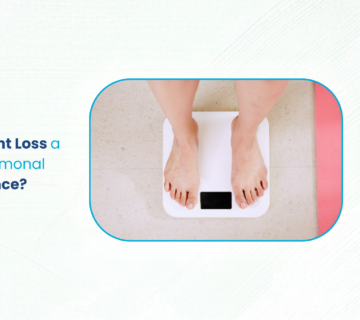If your teeth start to hurt, you might think you have a cavity or some other dental issue.
There are, however, other reasons for tooth pain besides cavities. If you also have pain in your ears, especially if it is only on one side, you might have an ear infection causing tooth pain.
But toothaches from decay can also cause ear pain, so you should never ignore them. You should figure out why do my ears and teeth hurt so you can get the right attention.
Sarah Purdy, PA-C, at Today Telemedicine, can treat your ear infection if you need urgent care. If you want to get more information, contact us.
We will talk about how ear infections and tooth pain are related below and let’s find out can an ear infection cause tooth pain.
Understanding the Connection
The ears, nose, and throat are interconnected through a network of nerves. When an infection affects one area, it can sometimes radiate pain to nearby regions, including the teeth. This phenomenon is known as referred pain.
Do sinus or ear infections hurt your teeth and jaw? Yes, and this is why.
No matter if it is flu or allergy season, kids and adults often get sinus and ear infections. You may have lower jaw toothache and ear pain in the same side, along with other cold-like symptoms. How does this relate? It is possible, so let us find out why.
Do you have a sudden toothache and feel sick? Although a sinus infection (sinusitis) or ear infection may be hurting your teeth and jaw, being ill is not always the cause of dental issues. As always, if tooth pain persists, see your dentist to rule out cavities, infections, etc.
Can an ear infection cause tooth pain?

Yes, toothache can be caused by an infection in the middle ear. But ear pain can also be caused by a toothache, so it is important to figure out which one it is. People with an untreated ear infection may have pain in their teeth and jaw because their mouth is so close to their ears.
There may be something wrong with your ears, jaw, or teeth that needs to be checked out by a doctor. If they find nothing wrong, they can treat the problem. It is easy to treat ear infections, and they should go away in one to two weeks.
Some signs of an ear infection are:
Different signs and symptoms of ear infections depend on the type and severity of the infection. These are some of the most common signs of an ear infection:
- Ear pain: The most common sign of an ear infection is mild or severe. It can hurt a lot, a little, or not at all. The pain may last all the time, or it may come and go.
- Fever: A fever is a common sign of an ear infection, especially in kids.
- Drainage from the ear: If you have an ear infection, fluid may build up in the middle ear and drain out of the ear canal.
- Hearing loss: Fluid buildup in the middle ear during an ear infection can make it hard to hear for a short time.
- The feeling of fullness in the ear: Feeling fullness or pressure in the middle ear when fluid builds up is also possible.
- Irritability: When kids have ear infections, they might be cranky, fussy, or have trouble sleeping.
- Loss of balance: An ear infection can sometimes cause dizziness or a loss of balance.
- Nausea and vomiting: Extreme ear infections can lead to nausea and vomiting.
How to relieve ear pain from toothache

If you have a toothache and pain in your ears, try the following home remedies and treatments:
1.Pain Relief Medications:
Pain killers you can buy over the counter, like aspirin, ibuprofen, or acetaminophen, can help ease the pain of a toothache.
2.Use a cold pack:
On the side of the face with tooth pain, a cold compress on the outside of the cheek can reduce inflammation and swelling, relieving ear pain.
3.Use salt water to swish:
If you rinse your mouth with warm salt water, it can help reduce swelling and kill germs, which could help with tooth and ear pain.
4.Raise the head:
Using extra pillows to keep your head up while you sleep can help relieve the pressure and throbbing of tooth and ear pain.
5.Keep trigger foods away:
Staying away from hot, cold, sugary, and acidic foods that can worsen tooth pain may also help ease the ear pain that goes along with it.
6.Get help from a professional.
It is essential to see a dentist to get to the bottom of the toothache and the ear pain that comes with it. A dentist can fix the problem correctly through root canal therapy or antibiotics.
Let’s sum up: Can an ear infection cause tooth pain?
An ear infection causing tooth pain because nerves in the head and neck are all linked. To get the correct diagnosis and treatment, it is essential to know how tooth and ear pain are connected. If you have a toothache and signs of an ear infection at the same time, you should see a doctor immediately to get the right treatment to ease your pain and speed up your recovery.
Frequently Asked Questions
Can a tooth infection cause eustachian tube dysfunction?
Swelling from tooth infections can affect the eustachian tube and cause dysfunction. For a proper diagnosis and treatment, consult a doctor.
Can an ear infection cause jaw pain?
Yes, ear infections can cause jaw pain. If you experience persistent jaw pain along with an ear infection, it’s advisable to seek medical attention for proper evaluation and management.
Can a tooth infection cause clogged ears?
An infection in a tooth can sometimes cause nearby tissues, like the ears, to swell or become inflamed. This swelling might make you feel like your ears are clogged. You should see a dentist and a doctor to get to the root of the problem.
How do I relieve ear pain from toothache?
To relieve the pain in your ears brought on by a toothache, you can take over-the-counter painkillers like ibuprofen or acetaminophen. A warm compress may also help temporarily if you put it on the affected ear. However, it’s crucial to address the underlying dental issue by consulting a dentist for proper diagnosis and treatment.





